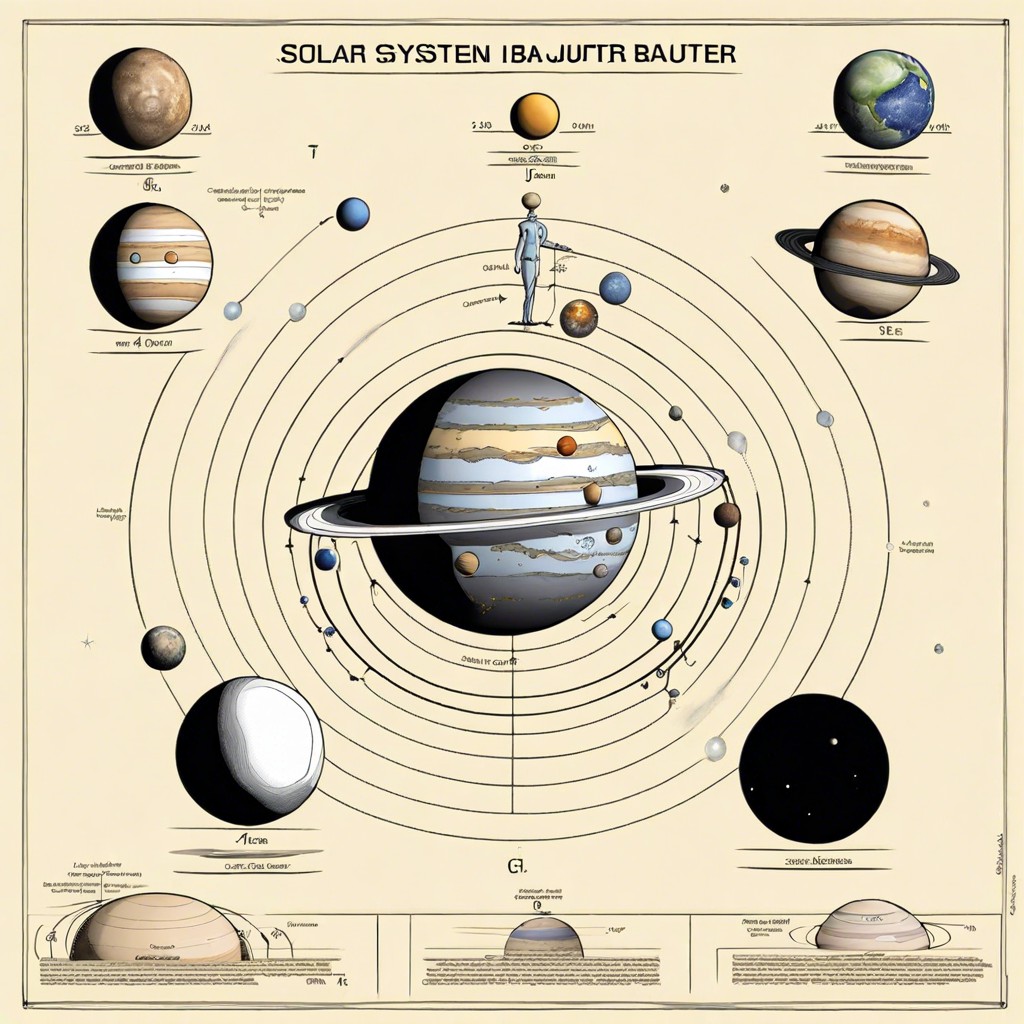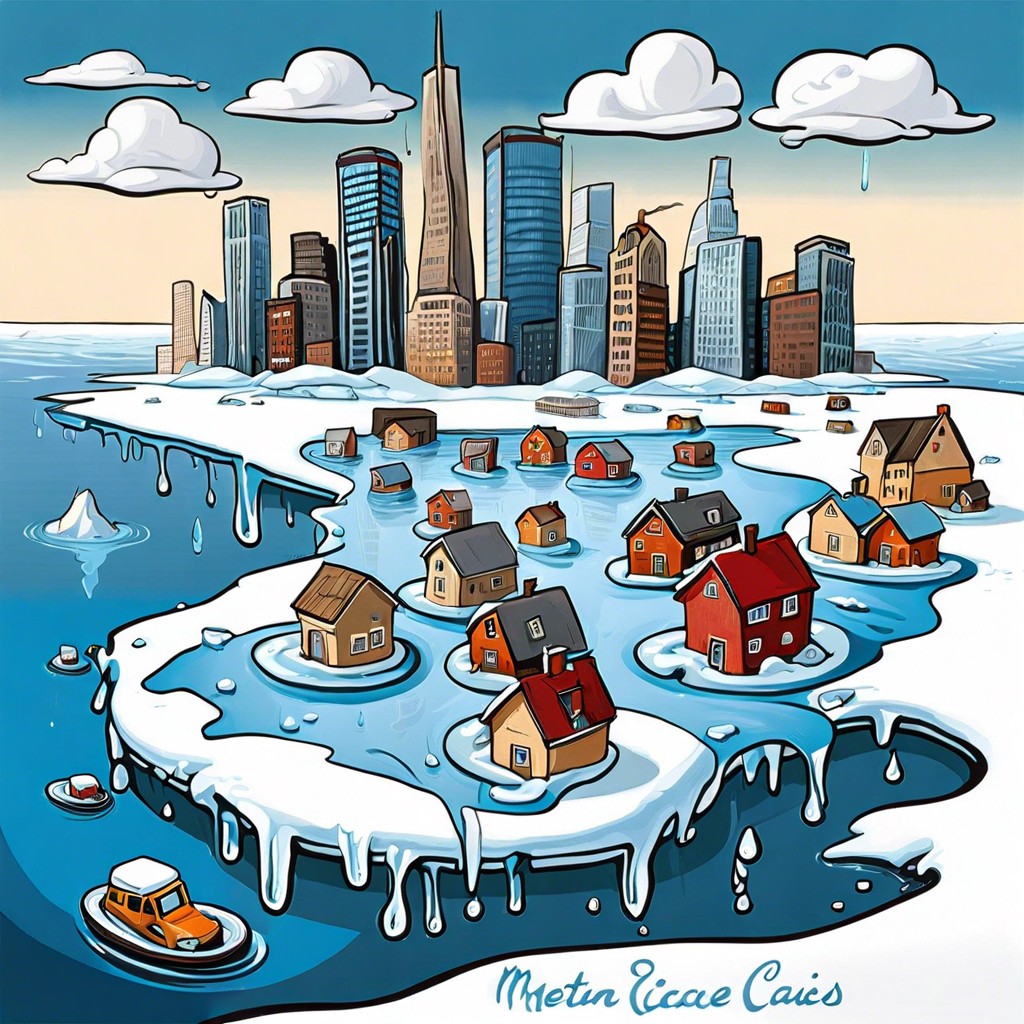Find out how Earth and the rest of our solar system could change if Jupiter went poof!
Imagine waking up to a colossal void where Jupiter used to be—our Solar System’s grand behemoth just *poof* gone. What kind of cosmic chaos would ensue? Hold on to your telescopes because we’re about to dive into a world where the gravitational linchpin is missing in action. From rogue asteroids rethinking their life choices to Earth maybe getting a tad too cozy with the sun, we’re covering it all. Buckle up, space adventurer!
Key takeaways:
- Earth faces more celestial traffic without Jupiter.
- Asteroid belt chaos ensues without Jupiter’s gravitational pull.
- Earth’s orbit and seasons could become unpredictable.
- Other planets’ stability compromised sans Jupiter.
- Future space missions face debris and trajectory challenges.
Impact On the Solar System’s Gravitational Balance

Imagine the solar system as a cosmic ballet, with each planet dancing gracefully around the Sun. Now, picture Jupiter as the hefty lead dancer who’s been keeping everyone in line. Without Jupiter’s gravitational pull, the performance would turn into a chaotic shuffle.
First off, Jupiter’s gravity acts like a massive cosmic vacuum, helping to clear out space debris and rogue asteroids. Without it, Earth and its planetary neighbors might find themselves dodging a lot more celestial traffic.
Secondly, Jupiter has a stabilizing effect on the orbits of other planets. Its absence could lead to slightly wobbly orbits, making our planetary dance less predictable and more erratic.
Lastly, Jupiter’s massive gravitation still extends to influence the behavior of its moons and even some bodies in the asteroid belt. Without this force, the solar system might undergo subtle, yet far-reaching changes, akin to removing a major pillar from a beautifully balanced structure.
So, losing Jupiter wouldn’t just be like misplacing an oversized marble; it’d be more like taking out the lead domino in an intricate setup.
Potential Changes in The Asteroid Belt
Without Jupiter playing cosmic bouncer, the asteroid belt would turn into a chaotic celestial dance-off. No DJ, no rules.
First off, Jupiter’s gravitational heft keeps many asteroids in check, preventing them from wandering off. Imagine those asteroids suddenly deciding they’re free to roam. Yep, rogue space rocks everywhere.
Next, Jupiter’s absence might make the asteroid belt denser. Think of it as throwing another handful of cereal into an already crowded bowl. More collisions, more debris, more cosmic mayhem.
Lastly, we could potentially face more asteroid impacts on Earth. Jupiter often slingshots dangerous asteroids away from our neighborhood. Without it, we’d lose our cosmic goalie. Hello, anxiety.
Effects On Earth’s Orbit and Habitability
Imagine Earth swinging around the sun like it’s dancing on a cosmic ballroom floor. Without Jupiter, the dance might get a bit… wobbly.
First, Jupiter’s gravitational pull acts like a big brother, keeping some pesky space rocks from heading our way. If it gets booted from the party, Earth might face more asteroid impacts. Grab an umbrella? More like a hard hat!
Second, Earth’s orbit could change. Maybe not drastically, but even slight shifts could mess with our seasons. Imagine winter in July and summer in December. Ice skating at summer BBQs could be fun, but let’s be real—a year-long climate rollercoaster could spell trouble for crops and ecosystems.
Lastly, Jupiter holds the solar system’s backyard BBQ together. Its absence might send subtle shockwaves through the gravitational playground, influencing Earth’s tilt, and maybe even pushing us closer or further from the sun. Either way, sunscreen sales would skyrocket.
Consequences for Other Planets’ Stability
Let’s face it, Jupiter’s the heavyweight champion of our solar system, holding things together with its immense gravitational pull. Without it, the other planets would feel the jolt.
Imagine Saturn wobbling like a toddler learning to walk. That sturdy ring system? Maybe not so sturdy anymore. It might end up looking like a messy game of cosmic pick-up-sticks.
Uranus and Neptune, those icy titans, could drift like lost balloons. Jupiter’s absence would mess up their orbits, making them susceptible to encounters with rogue asteroids or each other. Talk about celestial bumper cars!
Even Mars could experience some instability, its delicate atmosphere potentially stripped further by solar winds without Jupiter’s protective presence. Sure, gallivanting to the Red Planet sounds exciting, but not if it’s sporting a cosmic sunburn!
So, the collateral chaos of a vanishing Jupiter would make your unpredictable Mondays look like a cakewalk.
Implications for Future Space Exploration
Without Jupiter acting as the solar system’s celestial bouncer, future space missions might face some unique challenges. Let’s break it down:
Firstly, deep space missions could encounter more debris. Jupiter’s massive gravitational presence currently corrals a lot of wandering space rocks. Say goodbye to that cosmic vacuum cleaner! More debris means increased risks for spacecraft.
Secondly, trajectory planning would get trickier. Jupiter has been a helpful giant in slinging spacecraft towards their destinations using its gravity. No Jupiter, no gravitational assist. Mission planners will need to get creative with fuel and trajectory.
It could also affect long-term colonization plans. Orbiting moons like Europa or Ganymede, which are prime candidates for extraterrestrial bases, might drift into more chaotic paths without Jupiter’s steadying influence. Colonizing those moons might turn into a cosmic rodeo!
Lastly, absence of Jupiter could shift the focus to other planets and moons, stirring up innovation. Maybe it’s time Saturn takes a turn in the spotlight.
In sum, no Jupiter would equal more junk to dodge, tougher routes to plot, riskier colonization targets, and new opportunities for exploration. Sounds like space travel would get a lot more interesting!




